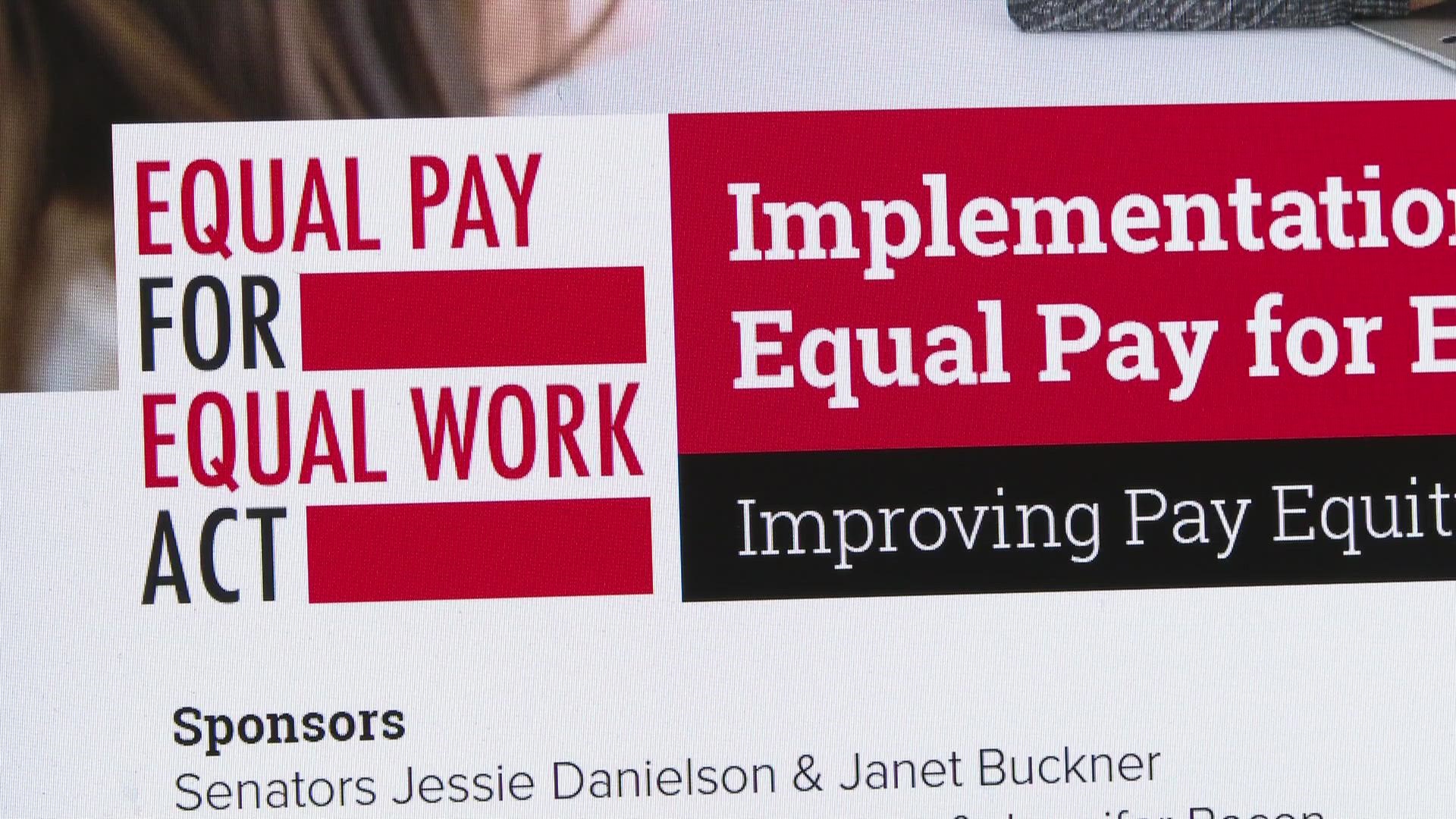COLORADO, USA — Colorado job seekers now have more transparency from potential employers after a law that took effect in 2021.
A new bill up for consideration in the state legislature intends to expand upon the original "Equal Pay for Equal Work Act," which was passed in May 2019, before the pandemic.
On Tuesday, legislators gathered to hear testimony for and against Senate Bill 105. Supporters said it'll help ensure pay equality, especially for women of color. Opponents said there are some unintended consequences of laws like this.
As a single mother raising her daughter, Edith Mata is just trying to make sure she's being paid fairly for the work she's doing.
So when she suspected that a male coworker was getting more opportunities for advancement and being paid more for the same work, she brought it to her union.
"When we compared and contrasted, we realized a lot of the women of color were actually being underpaid," Mata, who is also an organizer for 9to5 Colorado, said.
She said they were able to get back pay for that inequality, but had the benefit of a union to help negotiate.
"I think this bill will help a lot of workers be able to do that even if they don't have a union," Mata said.
Supporters of Senate Bill 105 said the proposed law would increase back pay disparities from up to six years ago and clarify job promotion notification requirements for employers, among other things.
"Knowing where you can go to be able to get a promotion, how to be able to do that, seeing how you can work up that ladder is very important," Mata said.
Adam Burg, President of Government Affairs at the Denver Metro Chamber of Commerce, said they're still dealing with unintended consequences from the initial "Equal Pay for Equal Work" law that passed in 2019.
"You now have to publicly post a position, publicly post the salary range of that position and go through all of these extra steps, when in the end, the intent is simply to retain someone who has been a value to your organization," he said.
Burg also said employers looking to hire remotely are skipping over applicants in Colorado because of these requirements.
"While this bill does a little bit to impact some of the in-line promotion aspects, it does nothing when it comes to the remote work," Burg said. "It creates new problems in the transparency mechanism that would require you to post basically the salary of who the position was hired at and then disclose to other applicants why essentially they did not get the job, which just is primed to create essentially a bit more of a hostile work environment."
Burg said he recognizes the initial law was passed before the pandemic, and before remote work became so prominent. He believes there should be some kind of exemption or leniency for remote positions in order to attract employers.
"I think ensuring that there is some secrecy to the hiring process in terms of who is getting hired at what salary and not having to disclose that fully to your entire employee network," Burg said.
He said the Denver Metro Chamber of Commerce strongly supported the initial bill in 2019, but implementation has proven to be difficult.
"I don't know that we have a full understanding on pay equity even in Colorado, and sometimes it feels like with these measures we're putting the cart before the horse," Burg said. "While we wholeheartedly believe in ensuring equal pay for equal work and the intent of these, when the design and the implementation is flawed, it can lead to flawed outcomes that actually impact those negatively who it was designed to help."
The Senate Business, Labor, & Technology committee heard testimony on the bill Tuesday.
SUGGESTED VIDEOS: Latest from 9NEWS

